Queer and Gender coach
I know you can't live on hope alone; but without hope, life is not worth living. So you, and you and you: you got to give them hope; you got to give them hope.
PREJUDICES, SOCIAL DISCRIMINATION
This type of coaching seeks to professionally guide individuals who experience difficulties relating to their sexual orientation and/or gender identity. As the world moves forwards, more and more people of all ages are coming out, young people especially. Society is largely becoming more accepting and understanding that the long propagated cisheteronormative narrative is not only wildly inaccurate, but in fact hurtful to those who fall outside of these definitions. Sexuality has been quite extensively researched, with the results varied and fascinating. Moreover, in very recent years, we have begun to see similar awareness regarding gender identity as has existed for some time around sexual orientation. It is important for many people who have been negatively affected to now feel able to define and explain their gender identity. To this aim, visibility is just as vital as open mindedness. Indeed, we see increasingly diverse depictions of gender and sexuality in our media and popular culture, which prompts us to question our attitudes and beliefs about our own identities and furthermore to better understand our loved ones. One of the biggest lessons we can all learn, regardless of our identities, is that there is no such thing as ‘normal’. This is a word that hinders our progress; whether that is our individual progress in exploring and reckoning with our own identity, or alternatively our progress as a cisgender or straight person trying to become more informed and empathetic. It was not so long ago that we would often hear that heterosexuality was ‘normal’ and anything else not – but thankfully this is no longer so widely believed. Today, we see our society coming to a similar point of reckoning with the concept of gender; it is heard too often that cisgender is ‘normal’ and anything else not. Needless to say, this is false and disrespectful. It is my hope that more of us – especially those of us who are not queer – can be open to learn and change our minds where necessary. Of course, this is not easy; naturally we do not like to admit we may be wrong. But when we consider how terribly high the rates of depressions and suicide are amoung LGBTQ+ people, especially among transgender and genderqueer people, it is my belief that the stakes are simply too high for us to act selfishly. It is out of this sense of empathy and the duty I feel as a privileged person that I will be following the training for this specific type of coaching, at the Dutch Academy of Psychotherapy in Amsterdam.
For me, this coaching is very personal. Some of the most important and influential people in my life have been gay, and being born and raised in Amsterdam, I have always felt enormous compassion for the LGBTQ+ community. Acceptance is one of my core values. It saddens me to see any hatred and homophobia, and I want to do all I can to help. Despite positive progress in our society, it is by no means perfect, and the process of self-acceptance for a queer person is still difficult. It can be necessary for some people to seek guidance as they come to realise who they are, prepare to come out, encounter discrimination, begin transitioning, or embark on their first queer relationship. This doesn’t happen overnight. It is natural to feel fear and think of all the reasons ‘why not’; but I am passionate about helping you see yourself in a positive light, and to see possibilities and potential in the road ahead as you prepare to live your life as your authentic, true self. This takes bravery and self-love, both of which can be difficult for queer people to find or reclaim. It is never too late. This coaching can also be helpful for people with a loved one in their life who is going through a period of self-realisation or transition. Perhaps you want to do the right thing, but you don’t quite know how, or what that even is. Naturally you love them and want to support them, but it can be hard to know the best way to do so. It is also important that you seek this sort of guidance from someone else, not the person themselves – because it is unreasonable to demand that they do this emotional labour for you. Genderqueer, non-binary, gender non-conforming, trans, femme, masc, intersex, demisexual, bi, pansexual, asexual, fluid, poly, grey…sometimes the new, unfamiliar terminology can seem overwhelming. Certainly, it continues to evolve and expand significantly, but this is not a reason for us to turn away – especially those of us who are cisgender or straight, to refuse to engage is an incredibly privileged choice; indifference and closed-mindedness often causes queer people immeasurable pain. The abject pain that a queer person – especially a young one – can feel when their family, friends or colleagues behave with such wilful ignorance, is immense; and in many cases they carry it with them to some degree for the rest of their lives, suffering the consequence of its negative impact on their mind and spirit. The natural lesson that follows this is the realisation that: just because we ourselves do not understand, it does not mean somebody’s identity is invalid or illegitimate. I feel it is important that we are educated and prepared to interact with, work with and love the queer people in our lives.
It is ok for all of us – queer or not – to feel uncertain, nervous or overwhelmed by the aforementioned terminology, but it is vital for us to familiarise ourselves with the queer lingo. By adding it to our vocabulary, we give ourselves tools for our own self-discovery; the euphoria a queer person can feel when they finally have the words to articulate themselves with precision and specificity is unparalelled and life-changing. And for allies: through expanding our own language, we add knowledge to our natural empathy, and we can then treat others with a deeply informed respect that is no longer just superficial or surface level.




